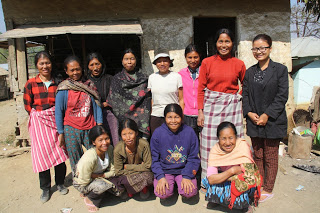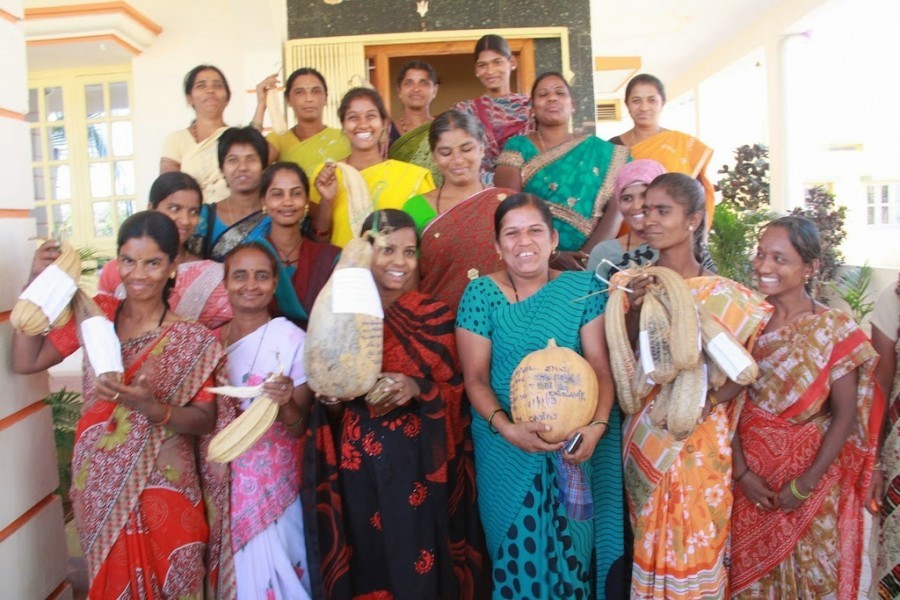Weathering the Storm: Gender Dimensions of Haiyan & Climate Change
Rucha Chitnis: Director of Grantmaking, Women’s Earth Alliance @ruchachitnis
As Philippines grasps the devastating scale of the destruction unleashed by Super Typhoon Haiyan, the global community must prioritize those who are being disproportionately impacted by this natural disaster—women and girls. The typhoon has impacted over 11 million people and aid gridlocks are paralyzing relief operations with poor access and communications. As aid and relief agencies scramble to deliver critical services to survivors, it is crucial to keep in mind the gender dimensions of natural disasters, and existing inequalities facing girls and women.
Why Gender Lens Is Crucial
Climate change and natural disasters are not gender neutral: Women and girls face multi-faceted discrimination and inequalities globally. Prevailing social norms – which leave women economically and culturally vulnerable in the best of times – impede women’s ability to recover from natural disasters and receive adequate support for their unique health, safety and other well-being needs. According to a report, Because I am A Girl, women and children are 14 times more likely to die in disasters than men.
Escalation of violence against women and girls: Disasters, such as the Super Typhoon, create crippling social breakdowns, including in law enforcement services. A study of the Center for Human Rights and Global Justice at NYU School of Law conducted in four camps of internally displaced persons around Port-au-Prince, Haiti, revealed alarming data: Of the households surveyed 14% “reported that, since the earthquake, one or more members of their household had been victimized by rape or unwanted touching or both.” The typhoon in Philippines is no different, and human rights groups are raising concerns of escalating violence against women and girls, including risks of trafficking, forced marriages and rape.
Lack of adequate healthcare: UNFPA estimates that nearly 200,000 pregnant women need additional support, with stories surfacing of women giving birth amidst the rubble. Approximately 40% of women in the Philippines deliver at home, so there is an urgent need for groups like UNFPA to provide clean delivery kits to partners and midwives.

Women’s groups in Manipur are raising awareness on climate change and promoting women’s role in governance
Around the world, women’s groups, solidarity networks and movements are demanding urgent climate action and a re-examination of a carbon-fueled development paradigm. Indigenous and rural women recognize that as mothers, caregivers, food producers, water and environmental stewards, they bear a disproportionate burden from these climate-induced disasters. Here are some holistic ways in which our grassroots partners and allies in South Asia and beyond are taking proactive steps to build community resiliency.Way Forward: What We Are Learning From Women’s Groups
Empowering Women & Promoting Rights: HIMANWANTI, Women’s Earth Alliance partner in Nepal, works to promote the rights of rural women in forest and natural resource management. HIMAWANTI believes that it is crucial to strengthen the role of women in the management and protection of biodiversity, as well as promote equitable access to natural resources and benefits generated from its use. They are also strengthening political literacy to build networks of healthy, conscious and empowered women throughout Nepal.
Ending Climate Denial and Demanding Accountability to Grassroots Women: A diverse gathering of women leaders from around the world in New York this year urged the world’s governments to make commitments to avoid a global temperature rise of 2.0 C degrees. Women also reminded the global community that citizens in industrialized nations have a responsibility to educate themselves and their worldviews and to divest from dirty fossil fuel developments, such as Tar Sands and fracking. Click here to read this powerful International Women’s Earth and Climate Summit declaration.
Promoting Women’s Decision-making: Our partner in Manipur, India, Rural Women Upliftment Society works to holistically build the leadership of indigenous women. RWUS promotes women’s participation in local governance, and provides capacity building support in sustainable agriculture and livelihoods to strengthen women’s food and economic security in the face of climate variability.
Respecting Women’s Knowledge and Expertise: Across the Global South, women farmers and Indigenous women’s networks and movements are positioning themselves as knowledge holders, equipped with a powerful agency to build holistic climate solutions. Women farmers are also seed savers, who have immense knowledge about native food crops, such as drought-resistant millet varieties that thrive in dry land areas and need little water for cultivation.

Women farmers in Karnataka are planting drought-resistant millets
and raising awareness on climate change through street theater and other activities
Our partner in India, the GREEN Foundation, believes it is vital to value women’s knowledge and expertise to promote food security and build community resiliency. GREEN is mentoring a group of women farmers in a drought-prone region in Karnataka in community radio production, where they will share information on climate change, early warning weather signs and promote sustainable agriculture as an important strategy to promote food security and healthy ecosystems.
There is an undeniable link between existing gender inequalities and how they exacerbate women’s vulnerabilities in the face of climate change and natural disasters. Women’s rights advocates note that it is crucial to include women’s leadership and decision-making in all aspects of climate change and disaster management program implementations and policies. Women’s participation is key in not only post disaster recovery efforts but also in proactive disaster prevention and climate mitigation and adaptation efforts. If you wish to donate to grassroots women’s groups that are leading recovery efforts for Typhoon Haiyan, consider donating to the Global Fund for Women. Also here’s an appeal with a list of organizations to support Indigenous peoples affected by this crisis.

Excellent thoughtful article. Thanks…